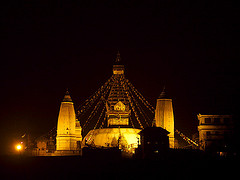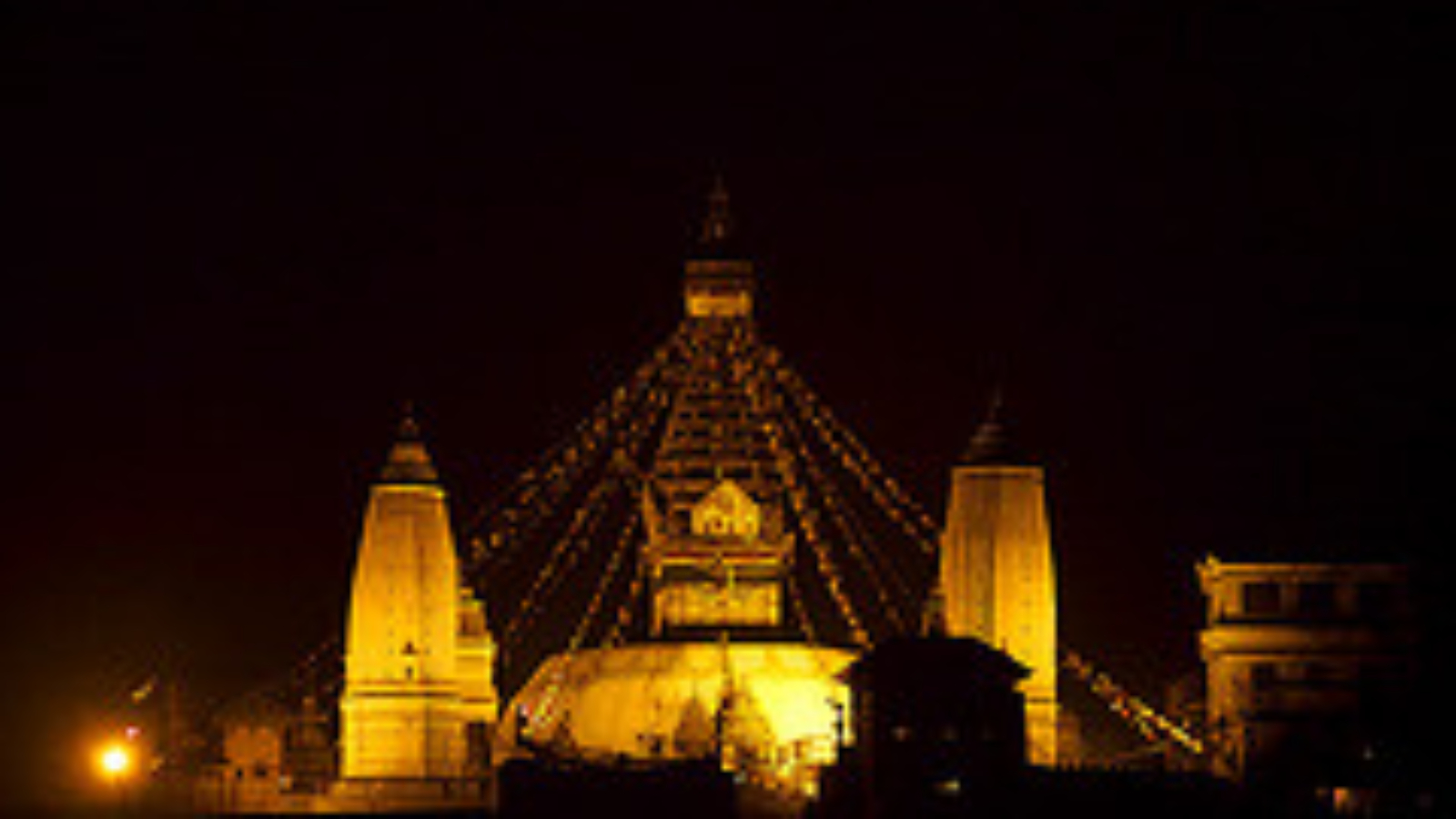 After six days of an increasingly violent strike staged by Maoists in Nepal, the former rebels succumbed to popular pressure Friday night and temporarily withdrew the strike which had successfully shut down the country's schools, hospitals, businesses and public transportation. Approximately 35,000 anti-Maoist protesters led by local business leaders and civil society groups gathered in the country's capital, Kathmandu, on Friday to demand life return to normal. “We have called off the strike because of the plight of people. The party has, however, decided to continue with our agitation in different manner,” responded Maoist leader Pushpa Kamal Dahal ‘Prachanda.' The Maoists, who hold about 40 percent of the seats in Parliament, are pushing for more power in government as the May 28 deadline to redraft the country's constitution looms near. The new constitution is the last act of the peace agreement negotiated in 2006 which ended a decade long communist uprising by the Maoists against government forces and left approximately 14,000 dead. Though the group made gains in the 2008 elections, they fell from power last year and are now calling for the prime minister, Madhav Kumar Nepal, to resign. They also want to dissolve the current government in order to form a new Maoist-led coalition that will complete the peace process. The international community has put pressure on the Maoists to end the strike permanently, including the United States, China and India, for fear of more violence. Human rights groups monitoring the situation have reported clashes between Maoist supporters and demonstrators. According to local media, police began throwing tear gas shells and charging batons on Friday's demonstration, and at least five people were injured in the western town of Lekhnath, about 200km west of Kathmandu, when violence erupted over the strike. The Nepali government said that it will not give in to their demands, and the Maoist leadership recently responded by saying they will continue protesting. “Our protest will now take a different nature and we reserve the right to resume the indefinite strike at a later date,” Pushpa Kamal Dahal said. Two more demonstrations are scheduled for the upcoming weekend.
After six days of an increasingly violent strike staged by Maoists in Nepal, the former rebels succumbed to popular pressure Friday night and temporarily withdrew the strike which had successfully shut down the country's schools, hospitals, businesses and public transportation. Approximately 35,000 anti-Maoist protesters led by local business leaders and civil society groups gathered in the country's capital, Kathmandu, on Friday to demand life return to normal. “We have called off the strike because of the plight of people. The party has, however, decided to continue with our agitation in different manner,” responded Maoist leader Pushpa Kamal Dahal ‘Prachanda.' The Maoists, who hold about 40 percent of the seats in Parliament, are pushing for more power in government as the May 28 deadline to redraft the country's constitution looms near. The new constitution is the last act of the peace agreement negotiated in 2006 which ended a decade long communist uprising by the Maoists against government forces and left approximately 14,000 dead. Though the group made gains in the 2008 elections, they fell from power last year and are now calling for the prime minister, Madhav Kumar Nepal, to resign. They also want to dissolve the current government in order to form a new Maoist-led coalition that will complete the peace process. The international community has put pressure on the Maoists to end the strike permanently, including the United States, China and India, for fear of more violence. Human rights groups monitoring the situation have reported clashes between Maoist supporters and demonstrators. According to local media, police began throwing tear gas shells and charging batons on Friday's demonstration, and at least five people were injured in the western town of Lekhnath, about 200km west of Kathmandu, when violence erupted over the strike. The Nepali government said that it will not give in to their demands, and the Maoist leadership recently responded by saying they will continue protesting. “Our protest will now take a different nature and we reserve the right to resume the indefinite strike at a later date,” Pushpa Kamal Dahal said. Two more demonstrations are scheduled for the upcoming weekend.
A Kurdish journalist was kidnapped, tortured and found dead on a highway with two bullet holes in his head earlier this week in Kurdistan, spurring concerns of growing threats and intimidation to press freedom in the relatively stable region of Iraq. Twenty-three year old Zardasht Osman, a freelance journalist and student at the University of Salahiddin, is only the second journalist to be killed in Kurdistan in the past three years, yet the security forces in the area are notorious for intimidating and harassing journalists who oppose the region’s conservative president, Massoud Barzani. Osman, who wrote for several local Kurdish publications though usually under a pseudonym, recently published a critical satire mocking the leader's corrupt patronage system, which friends and family believe led to his death. “Who can do this except the security and government forces?” a friend of Osman's asked The New York Times. According to friends and family, Osman was kidnapped Tuesday morning by men in a minibus after his brother dropped him off at The University of Salahiddin, where he would have graduated in June. The University is heavily guarded by six guards of the Zerevani unit of the Kurdish pesh merga armed forces, leaving Osman's coworkers to believe security forces were directly involved in his abduction. "This work is beyond the capability of one person or one small group," read a statement that was signed by 75 Kurdish journalists, editors and intellectuals on Thursday. “We believe the Kurdistan regional government and its security forces are responsible first and foremost and they are supposed to do everything in order to find this evil hand.” The local government reported the murder via its media publication Khabat, but only identified Osman as a student, not a journalist. Some members of the press speculate the Kurdistan Regional Government will not investigate the murder because the group that would lead the charge is led by Massoud Barzani's son, Masrour. Iraq was recently ranked a poor 145 for press freedom out of 175 countries in the Press Freedom 2009 index published by Reporters Without Borders. The country also holds the worst record in the world for solving murders of reporters, according to the Committee to Protect Journalist's 2010 "Impunity Index" published last month.
